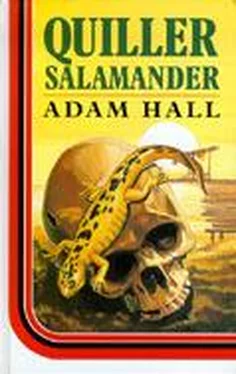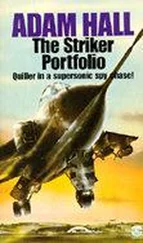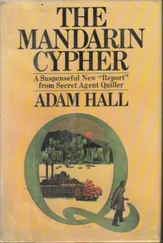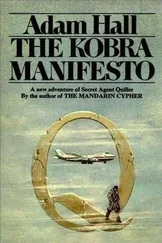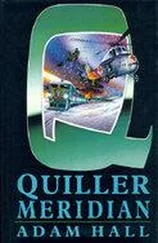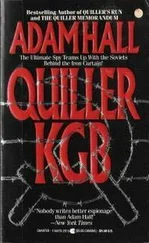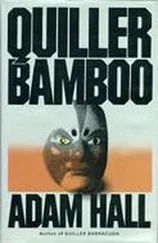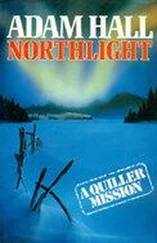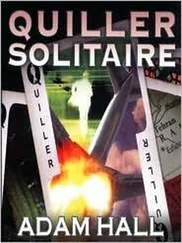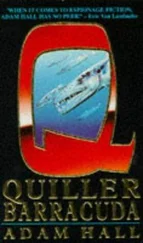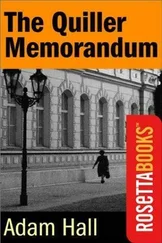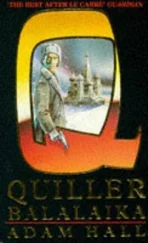But there wasn't anything Pringle could do: I didn't trust him, didn't respect him. Flockhart I would listen to; he was a major player, was seasoned, had authority. I didn't trust him either, but yes, I would listen.
'For this job,' I said, 'you'd need an ace.' We were working with a deadline and there was another rainstorm in and we couldn't wait for it to clear, would have to fly half-blind to the target, and if the rain was still coming down when we reached it there wouldn't be any point in even turning the cameras on.
'We have one,' I heard Flockhart saying.
'An ace?'
'Yes.'
Covered himself, in case I said no.
'He's tired of life?'
'He is not unsanguine.'
'I know him?'
'It's unlikely. But he's world class.'
And a Cambodian, he must be, burning with the holy fire of love for his country, ready to do or die. No one else would touch this one.
'What's the state of preparedness?' I asked Flockhart.
'Launch zero.'
Oh, Jesus, he'd been working through the night, he and Pringle, finding a pilot and a machine and putting them on stand-by at the airfield over there, locating the cameras, setting them up. Or had they done it days ago? The first time I'd met Pringle at the airport in Phnom Penh he'd told me that the first objective for Salamander was to get information on Pol Pot. I was close to doing that, had found him on the map, would have to follow up, make certain, get close to him with the cameras, take his bloody picture and send it to London, wish you were here, the weather's marvellous.
The weather was ten-tenths shit and I was standing here with the phone slippery with sweat because of the heat in this stinking hole and because I should have been warned when the pig had squealed and my nerves had jumped, should have been warned even then that I was going to do what he said, what Flockhart said, because I was already committed to putting my neck on the block in the name of the salamander, whatever the chances were of coming out of it with anything to show, of coming out of it alive; chances? surely you must be joking, they'll have weapons out there, never mind about the leaves overhead blocking their view, they can send up a square mile of fire power in a single blast the moment they hear the rotors, I wish to God they wouldn't keep that stinking pig in here.
'Do you have any questions?'
Flockhart.
'Yes. Who's going to replace me, if I come unstuck?'
Another of his bloody pauses. I suppose he was a bit surprised, the brave little ferret in the field had actually agreed to getting himself blown into Christendom without too much persuasion.
'No one would replace you.'
Bloody liar. The control always lines up a replacement when he sends his executive on a suicide run; I'd been one of them myself on half the missions I'd worked, walking in a dead man's shoes.
'There's no replacement?'
'You must take it how you will,' Flockhart said, 'but for this undertaking you are irreplaceable.'
Pringle was watching me, probably saw the reaction in my eyes: you don't blank everything off when you're with your director in the field, you're supposed to trust him.
'You mean this is a one-shot thing?'
Silence, then: 'Yes. You are our only chance. Surely you realized that.'
'Why should I?' Then I understood. 'Where is the Sacred Bull?'
It's what we call the Bureau, we the beleaguered minions in the field.
'Nowhere,' Flockhart said.
So he was still running Salamander solo, without a signals board, without support in the field, even without a replacement for the executive, going over the heads of Administration and reporting directly to the prime minister. Only four people, then, were privy at this stage to the mission: the PM, Flockhart, Pringle and I. Until they brought in Washington, until they had to, if an air strike was to be ordered.
'When will that change?' I asked Flockhart carefully. The stakes seemed suddenly rather high with only four players in the game.
'At some time in the future.'
Shouldn't have asked.
Pringle watched me as the trickle of water spread across the concrete, as the pig in there squealed again and the rain hit the window aslant in the wind and the leaves of the sugar palms out there shone steel-bright under the storm as I stood there looking for more questions to ask, for more information, some kind of reassurance that I wasn't expected to go into this phase of the mission with too much left to chance. But there weren't any questions left; Flockhart had briefed me as far as he needed to, had already set the whole thing up, pilot, chopper, cameras, and had given me the score: launch zero.
'We've got a rainstorm going on here,' I told him. 'We'll have to wait till it stops.'
'Of course.' His voice was almost gentle. 'Whenever you're ready.'
'My two sons were killed,' the man perched on the oil drum said in local French, and lit another Gauloise from the stub of the last. 'They were in the Fields.'
He was Captain Khay of the Cambodian Air Force, and he'd been seconded by his squadron to fly me to 12°3′N x 103° 1 0'E. The Sikorsky S-67 was standing behind us in the hangar, squat, matt black, ugly as sin.
Khay stared out at the rain as it came slanting across the open doors of the hangar, stirring the bright grey puddles into boiling steel. The sun was still in the sky somewhere, but low now and drowned in the haze; the light across the airfield was bleak, electric, looking as if someone had forgotten to switch it off.
'So I am doing this,' the captain said, 'for my sons, for the king, and for my people.'
'Doing this?'
Khay looked at me with a jerk of his head. 'This sortie.'
'You wouldn't fancy it,' I said, 'otherwise.' And listened carefully.
'How do the Americans say?' He tried out his English, 'You must do a thing — ' then shook his head.
'You gotta do whatcha gotta do.'
'That is right, yes!' The smile didn't reach his eyes; they simply narrowed. His eyes had never lit, I would have thought, since his sons had died. 'That is why I do it.'
'Did you volunteer?' I asked him.
'No. I am chosen because I am the most experienced pilot in the service, with the helicopters.' He flicked ash off his Gauloise.
'What happened to your hand?'
'Oh' — he looked at it — 'it is snake bite, long time ago. Cobra.'
'You must be pretty fit.'
He shrugged. 'One simply has to relax. Western people drink whole bottle of whisky, sometimes works. Meditation best. So why do you do this?'
'Why am I making this sortie?'
'Yes.'
'You gotta do whatcha gotta do.'
The grimace. 'I think that is what you will say.'
He got off the oil drum and walked towards the curtain of rain at the entrance to the hangar, looking at the sky. At the mine-clearing unit they'd said the storm was going to last another twelve hours, but Pringle had ordered me down here to meet Khay, who said it could clear by midnight. The sun must be down by now; the sugar palms were lost in the haze and the terminal building was marked only by its lights.
In a moment Khay turned and came back, pulling a map from his jump suit and spreading it across the oil drum. 'We will go soon,' he said. 'Maybe another hour — the wind is shifting. But if we run into any more rain we will simply fly around it. If that is not possible, then we will put her down and wait it out, maybe here, or here, somewhere between the mountains. We have rations and water for three days, and enough fuel for 400 kilometres. We can sleep in the machine if we need to. Have you any questions?'
'What's your ideal schedule?'
'My ideal schedule is that we go in and take the photographs within an hour, maybe ninety minutes, and get out again' — he glanced up at me — 'if they let us.' He folded the map. 'I do not want to have to fly this thing in the daylight. The identification numbers are false and we could be challenged by radio; there are so many factions, you see, suspicious of each other, quite apart from the Khmer Rouge. This is not an air force machine, with that identification, but it is obviously assigned to night flying, and that could raise questions.' He lit another Gauloise, his hand not quite steady — not, I thought, because he was worried about the flight but because his nerves had been under strain ever since Pol Pot had taken over the country. I'd noticed it in others; the people here lived in the constant fear that it could happen again.
Читать дальше
